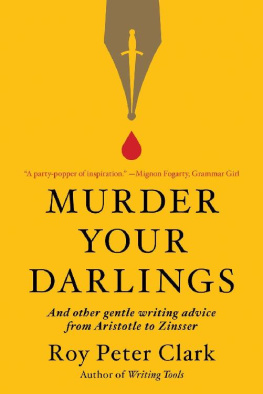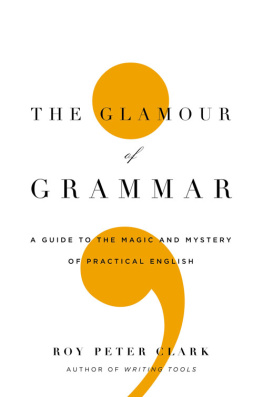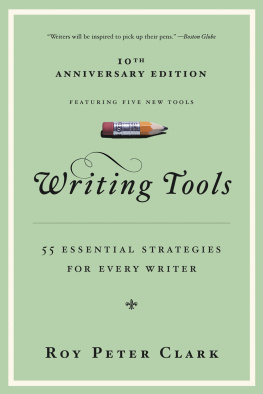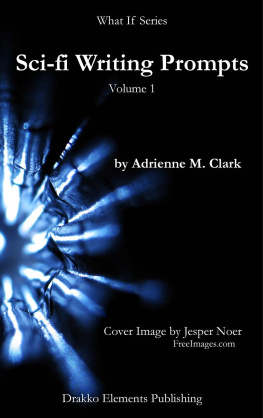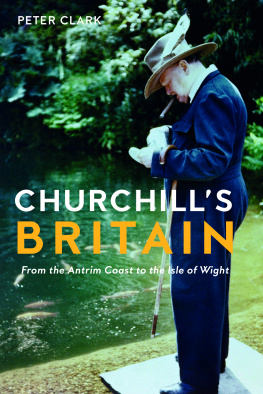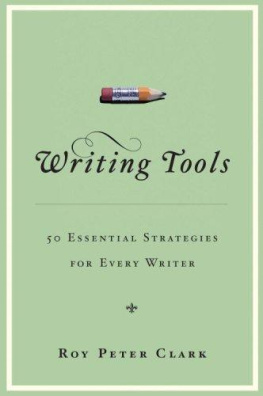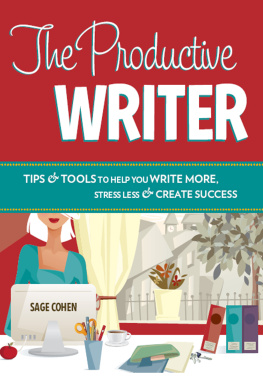Roy Peter Clark - Writing Tools - 50 Essential Strategies for Every Writer
Here you can read online Roy Peter Clark - Writing Tools - 50 Essential Strategies for Every Writer full text of the book (entire story) in english for free. Download pdf and epub, get meaning, cover and reviews about this ebook. genre: Art. Description of the work, (preface) as well as reviews are available. Best literature library LitArk.com created for fans of good reading and offers a wide selection of genres:
Romance novel
Science fiction
Adventure
Detective
Science
History
Home and family
Prose
Art
Politics
Computer
Non-fiction
Religion
Business
Children
Humor
Choose a favorite category and find really read worthwhile books. Enjoy immersion in the world of imagination, feel the emotions of the characters or learn something new for yourself, make an fascinating discovery.

- Book:Writing Tools - 50 Essential Strategies for Every Writer
- Author:
- Genre:
- Rating:5 / 5
- Favourites:Add to favourites
- Your mark:
- 100
- 1
- 2
- 3
- 4
- 5
Writing Tools - 50 Essential Strategies for Every Writer: summary, description and annotation
We offer to read an annotation, description, summary or preface (depends on what the author of the book "Writing Tools - 50 Essential Strategies for Every Writer" wrote himself). If you haven't found the necessary information about the book — write in the comments, we will try to find it.
Writing Tools - 50 Essential Strategies for Every Writer — read online for free the complete book (whole text) full work
Below is the text of the book, divided by pages. System saving the place of the last page read, allows you to conveniently read the book "Writing Tools - 50 Essential Strategies for Every Writer" online for free, without having to search again every time where you left off. Put a bookmark, and you can go to the page where you finished reading at any time.
Font size:
Interval:
Bookmark:
Fifty Writing Tools
From the workbench of
Roy Peter Clark .
Senior Scholar, Poynter Institute
online at :
Introduction :
At times, it helps to think of writing as carpentry. That way, writers and editors can work from a plan and use tools stored on their workbench. You can borrow a writing tool at any time. And here's a secret: Unlike hammers, chisels, and rakes, writing tools never have to be returned. They can be cleaned, sharpened, and passed on.
Each week, for the next 50, I will describe a writing tool that has been useful to me. I have borrowed these tools from writers and editors, from authors of books on writing, and from teachers and writing coaches. Many come from the X-ray reading of texts I admire.
I have described most of these tools in earlier lists, first of 20 and then 30. In those renditions, I defined each tool in shorthand, 50 words or less, without elaboration or exemplification. In spite of -- perhaps because of -- their brevity, many aspiring writers found them useful, and the tools popped up all over the Internet, translated into several languages. This warm acceptance has given me the courage to do more with these tools, to hone them, to discard some rusty ones, and to add to my collection.
As you study and discuss these, please remember:
These are tools and not rules. They work outside the realm of right and wrong, and inside the world of cause and effect. You will find many examples of good writing that seem to "violate" the general advice described here.
It will not help to apply these tools at once , just as aspiring golfers swing and miss if they try to remember the 30 or so different elements of an effective golf swing.
You will become handy with these tools over time. You will begin to recognize their use in the stories you read. You will see chances to apply them when you revise your own work. Eventually, they will become part of your flow, natural and automatic.
You are already using many of these tools without knowing it. It is impossible to speak, write, or read without them. But now these tools have names, so you can begin to talk about them in different ways. As your critical vocabulary grows, your writing will improve.
My friend Tom French, who won a Pulitzer Prize for feature writing, told me he liked my tool list because it covered writing from the "sub-atomic to the metaphysical level." By sub-atomic, he meant the ways words, phrases, and sentences work. By metaphysical, he meant the ways writers live, dream, and work.
With that as both introduction and promise, let us begin.
The Tools :
#1: Branch to the Right
#2: Use Strong Verbs
#3: Beware of Adverbs
#4: Period As a Stop Sign
#5: Observe Word Territory
#6: Play with Words
#7: Dig for the Concrete and Specific
#8: Seek Original Images
#9: Prefer Simple to Technical
#10: Recognize Your Story's Roots
#11 Back Off or Show Off
#12: Control the Pace
#13: Show and Tell
#14: Interesting Names
#15: Reveal Character Traits
#16: Odd and Interesting Things
#17: The Number of Elements
#18: Internal Cliffhangers
#19: Tune Your Voice
#20: Narrative Opportunities
#21: Quotes and Dialogue
#22: Get Ready
#23: Place Gold Coins Along the Path
#24: Name the Big Parts
#25: Repeat
#26: Fear Not the Long Sentence
#27: Riffing for Originality
#28: Writing Cinematically
#29: Report for Scenes
#30: Write Endings to Lock the Box
#31: Parallel Lines
#32: Let It Flow
#33: Rehearsal
#34: Cut Big, Then Small
#35: Use Punctuation
#36: Write A Mission Statement for Your Story
#37: Long Projects
#38: Polish Your Jewels
#39: The Voice of Verbs
#40: The Broken Line
#41: X-Ray Reading
#42: Paragraphs
#43: Self-criticism
#44: Save String
#45: Foreshadow
#46: Storytellers, Start Your Engines
#47: Collaboration
#48: Create An Editing Support Group
#49: Learn from Criticism
#50: The Writing Process
Writing Tool #1: Branch to the Right
Begin sentences with subjects and verbs, letting subordinate elements branch to the right.
Even a long, long sentence can be clear and powerful when the subject and verb make meaning early.
To use this tool, imagine each sentence you write printed on an infinitely wide piece of paper. In English, a sentence stretches from left to right. Now imagine this: A reporter writes a lead sentence with subject and verb at the beginning, followed by other subordinate elements, creating what scholars call a "right-branching sentence."
I just created one. Subject and verb of the main clause join on the left ("A reporter writes") while all other elements branch off to the right. Here's another right-branching sentence, written by Lydia Polgreen as the lead of a news story in The New York Times:
Rebels seized control of Cap Haitien, Haiti's second largest city, on Sunday, meeting little resistance as hundreds of residents cheered, burned the police station, plundered food from port warehouses and looted the airport, which was quickly closed. Police officers and armed supporters of President Jean-Bertrand Aristide fled.
That first sentence is 37 words long and rippling with action. The sentence is so full, in fact, that it threatens to fly apart like some overheated engine. But the writer keeps control by creating meaning in the first three words: "Rebels seized control..." Think of that main clause as the locomotive that pulls all the cars that follow.
Master writers can craft page after page of sentences written in this structure. Consider this passage by John Steinbeck from "Cannery Row," describing the routine of a marine scientist named Doc:
He didn't need a clock. He had been working in a tidal pattern so long that he could feel a tide change in his sleep. In the dawn he awakened, looked out through the windshield, and saw that the water was already retreating down the bouldery flat. He drank some hot coffee, ate three sandwiches, and had a quart of beer.
The tide goes out imperceptibly. The boulders show and seem to rise up and the ocean recedes leaving little pools, leaving wet weed and moss and sponge, iridescence and brown and blue and China red. On the bottoms lie the incredible refuse of the sea, shells broken and chipped and bits of skeleton, claws, the whole sea bottom a fantastic cemetery on which the living scamper and scramble.
In each sentence, Steinbeck places subject and verb at or near the beginning. Clarity and narrative energy flow through the passage, as one sentence builds upon another. And he avoids monotonous structure by varying the length of his sentences.
Subject and verb often get separated in prose, usually because we want to tell the reader something about the subject before we get to the verb. When we do this, even for good reasons, we risk confusing the reader:
A bill that would exclude tax income from the assessed value of new homes from the state education funding formula could mean a loss of revenue for Chesapeake County schools.
Eighteen words separate the subject "bill" from its weak verb "could mean," a fatal flaw that turns what could be an important civic story into gibberish.
If the writer wants to create suspense, or build tension, or make the reader wait and wonder, or join a journey of discovery, or hold on for dear life, she can save the verb until the end.
Workshop:
Read through an edition of The New York Times with a pencil. Mark the location of subjects and verbs.
Do the same with a collection of your own stories.
Do the same with a draft of a story you're working on now.
The next time you struggle with a sentence, see if you can rewrite it by placing subject and verb at the beginning.
Next pageFont size:
Interval:
Bookmark:
Similar books «Writing Tools - 50 Essential Strategies for Every Writer»
Look at similar books to Writing Tools - 50 Essential Strategies for Every Writer. We have selected literature similar in name and meaning in the hope of providing readers with more options to find new, interesting, not yet read works.
Discussion, reviews of the book Writing Tools - 50 Essential Strategies for Every Writer and just readers' own opinions. Leave your comments, write what you think about the work, its meaning or the main characters. Specify what exactly you liked and what you didn't like, and why you think so.

